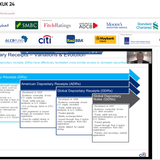A naive vision exists that the government can easily cut spending, so if it fails to do so, the reason is negligence or somthing to that effect. Even if the entire public apparatus were shut down, the shortfall would not be covered. In reality, the federal budget is nearly all earmarked for obligatory expenditures (more than 90%), which can only be reduced with structural reforms.
Spending on the pension system accounts for 54% of the budget deficit, and will grow substantially as the population ages. Initiatives like administrative reform and combatting corruption, although salutary, will not resolve the problem, because they do not address the real cause of the rigidity and the budget hole.
Even if the federal government succeeds in winning approval of the social security reforms without any significant amendments, expenditures will still rise for a long time, because the transition period will be 15-20 years.
In the short run, it is not inappropriate to propose an increase in the tax burden, until the effects of the reform materialize. Faster closing of the budget gap will strengthen confidence in the government’s ability to honour its debts, helping the Central Bank to lower the basic interest rate.
However, there are costs involved, particularly at a time when society and the productive sectors are intolerant of higher taxes, and the economy is still fragile. Raising the tax burden may not be workable in practice.
Since the government has made progress with the fiscal reforms, the budget shortfall in the short run probably won’t compromise its fiscal credibility. The spending cap rule (Constitutional Amendment 95) was approved, establishing that public spending cannot increase more than inflation for at least the next 10 years. The social security reform is also advancing in Congress.
Confidence in the government, however, can evaporate if it caves in to pressure groups and does not win approval of a decent reform package. The tolerance of economic agents to negative fiscal results can easily evaporate. In this case, a tax increase would be inevitable. The alternative, worse still, would be higher inflation. This would allow the benefit of the few, by avoiding adjustment of the pension system, to harm society as a whole, which will pay the bill.
Increasing taxes is a palliative, with limits. Over the long run it harms the economy. From the standpoint of economic efficiency and long-term growth, there are no doubts that the best remedy is to cut spending. This is particularly the case because the Brazilian tax system produces many distortions and the allocation of public resources is inadequate. This is the spirit of the spending cap rule.
The reforms cannot be avoided for much longer. Besides the pension system, it will be important for future governments to advance by cutting other obligatory expenditures, to raise the government’s capacity to invest in infrastructure and social policies.
Brazilian society needs to discuss the job stability of civil servants, the absence of tuition of public universities and various tax breaks. These policies should be reassessed, irrespective of any collapse of the public accounts, due to the distortions and social injustice they produce. Improving the allocation of public spending is the most effective way to combat inequality. In times of fiscal crisis, this agenda is even more important, because with inflationary financing of the public deficit, the poorest members of society lose twice.
Our history is replete with examples of the high cost of putting off reforms. That of the social security system is one of them. But we’ve reached an impasse with few viable paths forward. The option to raise taxes may not be practical in today’s climate. This can be avoided as long as there is confidence in the reforms. And it can be a palliative if the reforms are not effective. But it will not be a lasting option. It’s not the solution.









